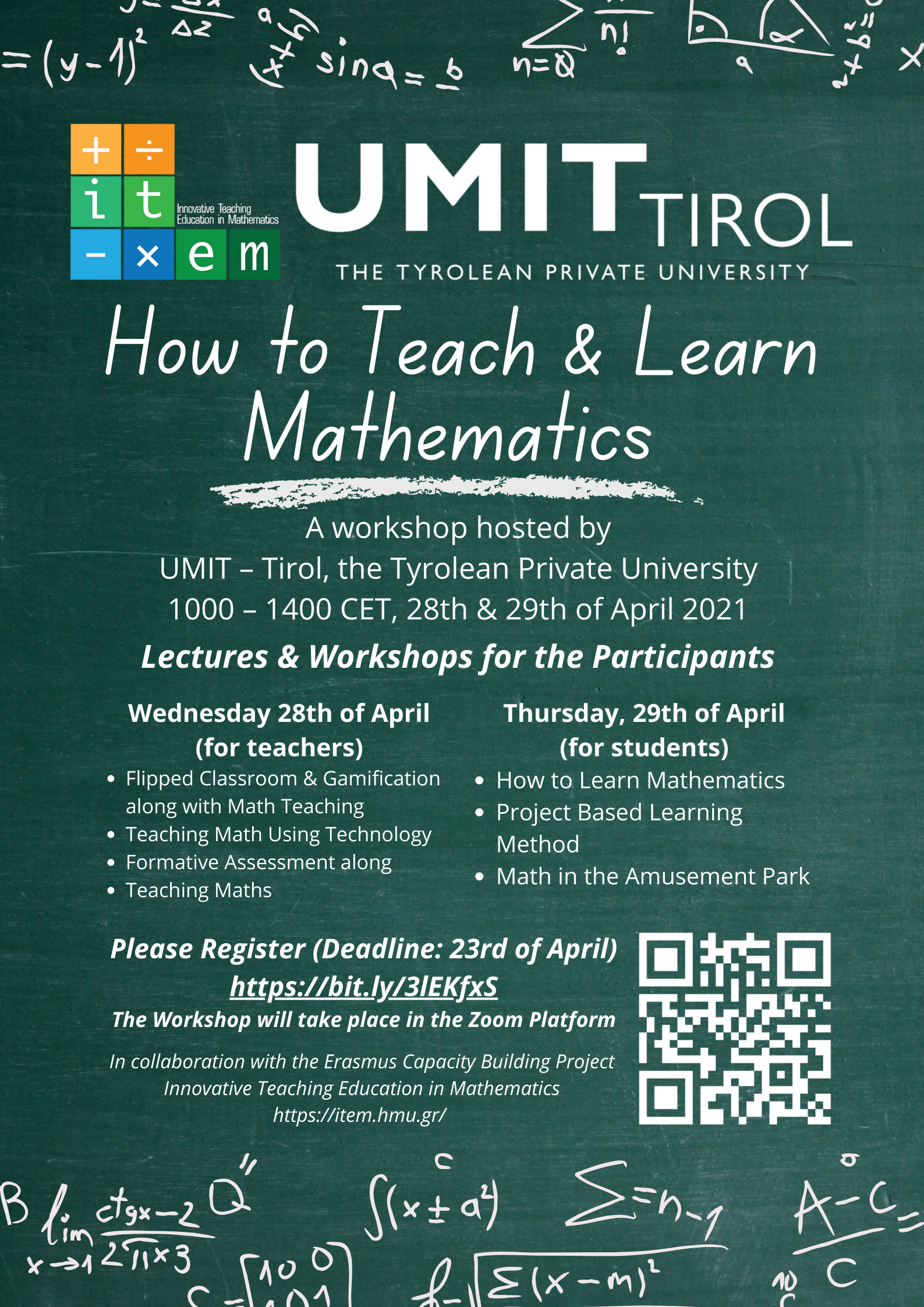
Innovative Teaching Education in Mathematics -ITEM
The majority of students do not seem like studying Mathematics. They do not appreciate the importance and the role of Mathematics in solving real-life problems and applications. They think that only gifted and very talented students can understand and apply Mathematics. Calculus I and Linear Algebra are the backbone modules of 1st-year studies in any STEM degree. These modules are blamed for being a leading cause for student’s failure to meet the requirements of first-year Academic studies and ultimately to graduate. Some students even abandon their studies because of their poor achievements in Mathematics. Teaching Mathematics nowadays in Europe and beyond Europe seems to fail to link Mathematics with real – life and technology challenges.
The iTEM project envisions to help undergraduate students to realise the impact of mathematics on their studies and professional carrier success independently of scientific discipline. The project main outcomes include (a) the integration real-life problems into Calculus I and Linear Algebra I to show the application of Mathematics in today’s technology; (b) the development of CAS, the incorporation of mobile tools & visualisations along teaching Mathematics; (c) the development of software that allows teachers to early identify student’s that face problem in learning Mathematics and so provide assistance to overcome these challenges; (d) the development of teaching and learning manuals for more effective teaching & learning Mathematics; (e) the training of teacher’s in the most modern & efficient teaching techniques like the Problem Based Learning (PBL) and Project Oriented Based Learning (POPBL) along Mathematics teaching
The iTEM is a consortium of 16 partners from Programme Countries Institutions (Greece, Spain, Austria, Sweden, North Macedonia) and Partner Countries Institutions (Israel, Kosovo, Uzbekistan). The participant Universities are:
Technological Educational Institute of Crete – Coordinator of the project, Greece
Aalborg University – Denmark
The Technical University of Prague – Czech Rebuplic
Cyril & Methodius University – North Macedonia
UMIT – Austria
Holon Institute of Technology – Israel
Hadassah Academic College – Israel
Weizmann Institute of Science – Israel
The National University of Uzbekistan – Uzbekistan
Tashkent University of Information Technologies – Uzbekistan
University of Mitrovica Isa Boletini – Kosovo
Karlstad Universitet – Sweden
University La Laguna – Spain
Karshi Engineering – Economics Institute
Innovative Teaching Education in Mathematics Capacity Building Project Kick-Off Meeting
The Erasmus Plus Capacity Building Project for Higher Education entitled Innovative Teaching Education in Mathematics – iTEM kick-off meeting took place in the Department of Electronic Engineering of Technological Educational Institute of Crete, on the 14th and 15th of February 2019, in Chania, Crete.
More than 30 participants from the consortium partners participated. The main topics of the kick-off meeting were:
- The consortium partners’ presentations
- The project’s motivation and objectives
- The project’s first six months actions
- The project’s administration and management regulation
The decisions were made are the following:
- By the end of March 2019 all the (a) syllabi of Linear Algebra and Calculus; (b) past test exam papers; (c) Failure and drop out rates, should be collected
- By the end of March 2019, all the reporting templates are uploaded onto the website
- By the end of March 2019, suggest the real-life problems that can be integrated within the update curricula of Linear Algebra and Calculus I
- Introduce facilities & procedures that can be built within the consortium Institutions to provide assistance to students that face difficulties to understand mathematics
- Plan, execute and extract of results of a survey regarding the development of the 1st version of a teaching guide regarding the most efficient teaching of mathematics in Higher Education. The parameters that will be taken into account are: (a) Learning philosophies in different Institutions; (b) Cultural Background; (c) Challenges in different countries; (d) Ethical regulations and limitations in each country
- To decide which visualisations, mobile tools & CAS systems to be employed across teaching mathematics


